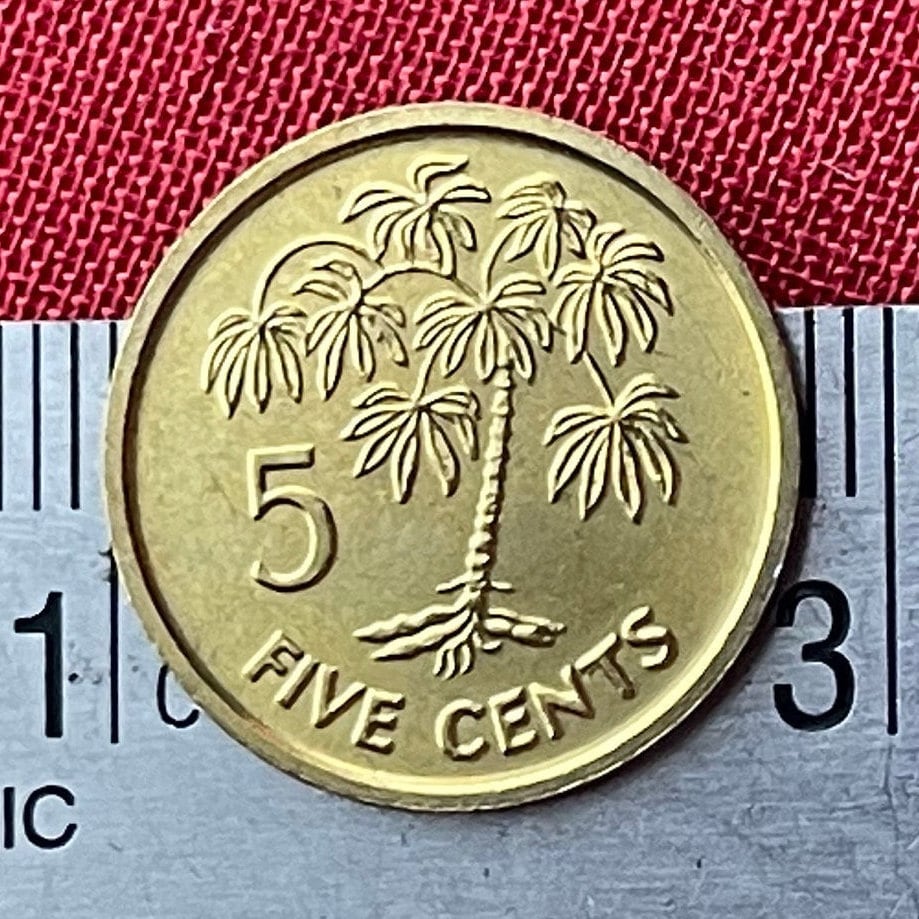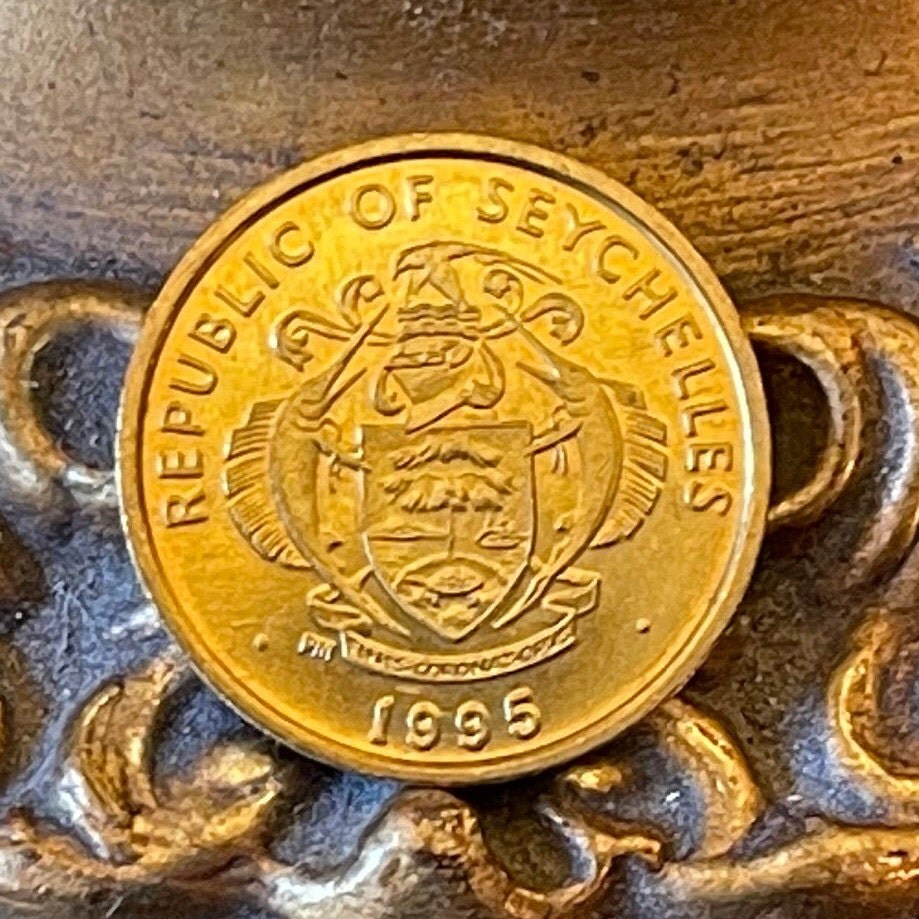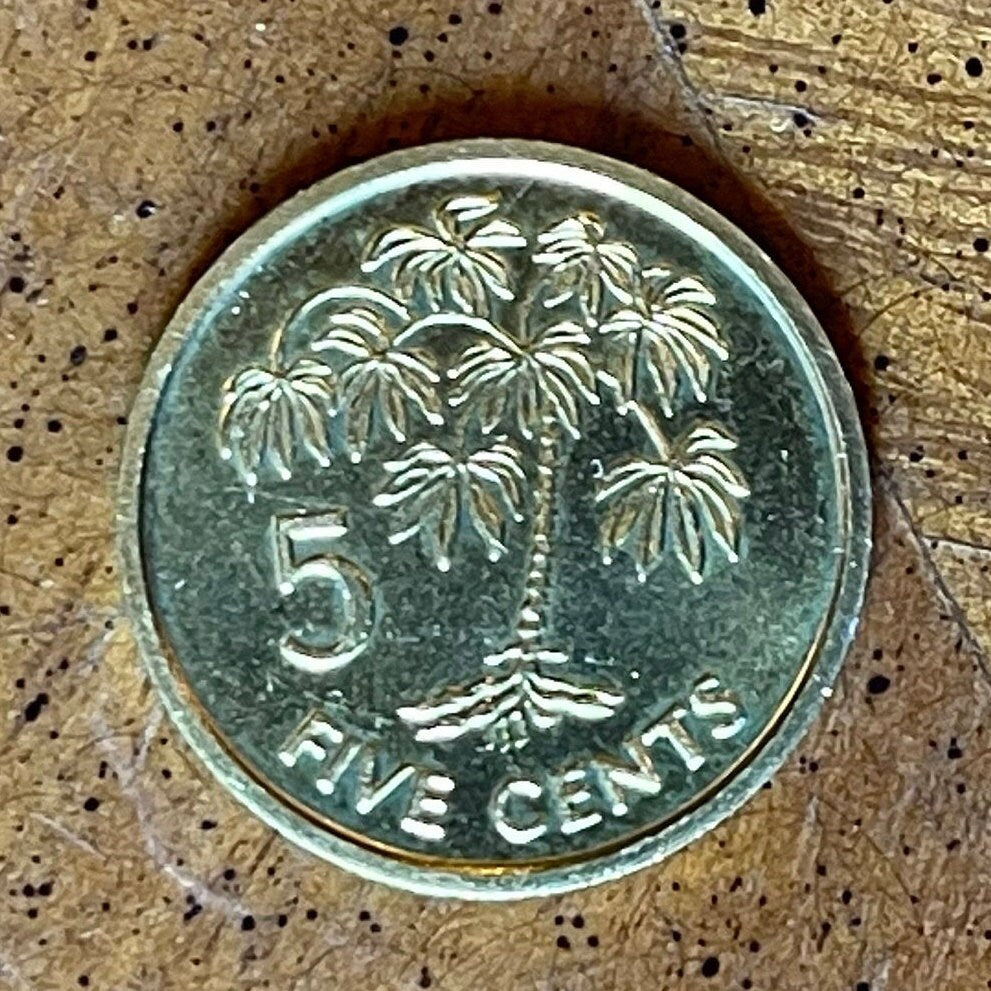elemintalshop
Cassava 5 Cents Seychelles Authentic Coin Money for Jewelry and Craft Making (Manioc)
Cassava 5 Cents Seychelles Authentic Coin Money for Jewelry and Craft Making (Manioc)
Couldn't load pickup availability
Cassava 5 Cents Seychelles Authentic Coin Money for Jewelry and Craft Making (Manioc) (Yuca)
Reverse: Cassava plant (also known as manioc, and as yuca)
Lettering: 5 FIVE CENTS
Obverse: Coat of arms
Lettering: REPUBLIC OF SEYCHELLES
Finis Coronat Opus
Features
Issuer Seychelles
Period Republic (1976-date)
Type Standard circulation coin
Years 1982-2003
Value 5 Cents
0.05 SCR = 0.0036 USD
Currency Rupee (1914-date)
Composition Brass
Weight 1.95 g
Diameter 18 mm
Thickness 1.1 mm
Shape Round
Orientation Medal alignment ↑↑
Number N# 4181
References KM# 47.1, Schön# 47, KM# 47.2
Wikipedia:
Manihot esculenta, commonly called cassava (/kəˈsɑːvə/), manioc, or yuca (among numerous regional names) is a woody shrub native to South America of the spurge family, Euphorbiaceae. Although a perennial plant, cassava is extensively cultivated as an annual crop in tropical and subtropical regions for its edible starchy tuberous root, a major source of carbohydrates. Though it is often called yuca in parts of Spanish America and in the United States, it is not related to yucca, a shrub in the family Asparagaceae. Cassava is predominantly consumed in boiled form, but substantial quantities are used to extract cassava starch, called tapioca, which is used for food, animal feed, and industrial purposes. The Brazilian farinha, and the related garri of West Africa, is an edible coarse flour obtained by grating cassava roots, pressing moisture off the obtained grated pulp, and finally drying it (and roasting in the case of farinha).
Cassava is the third-largest source of food carbohydrates in the tropics, after rice and maize. Cassava is a major staple food in the developing world, providing a basic diet for over half a billion people. It is one of the most drought-tolerant crops, capable of growing on marginal soils. Nigeria is the world's largest producer of cassava, while Thailand is the largest exporter of cassava starch.
Cassava is classified as either sweet or bitter. Like other roots and tubers, both bitter and sweet varieties of cassava contain antinutritional factors and toxins, with the bitter varieties containing much larger amounts. It must be properly prepared before consumption, as improper preparation of cassava can leave enough residual cyanide to cause acute cyanide intoxication, goiters, and even ataxia, partial paralysis, or death. The more toxic varieties of cassava are a fall-back resource (a "food security crop") in times of famine or food insecurity in some places. Farmers often prefer the bitter varieties because they deter pests, animals, and thieves.
**********
Wikipedia:
The coat of arms of the Republic of Seychelles shows a shield, in which a giant tortoise is located on green grounds. On the ground there is a coco de mer palm tree. Behind it there is a blue sea with two islands and a sail ship to be seen. The shield is enthroned by a silver helmet, on which a white-tailed tropicbird is located above blue and white waves. The shield is supported by two white sailfish. Beneath the shield the motto of Seychelles is stated: "Finis Coronat Opus" (a phrase traditionally attributed to Ovid. (Latin for "The End Crowns the Work").
Share










The quality of this coin was better than the picture. This item exceeded my expectations. This store front offers a wide variety of coins. It is a great place to shop for both collecting coins and crafting jewelry.









